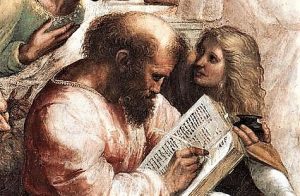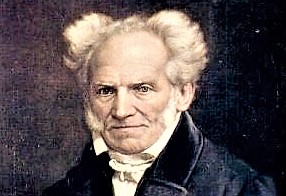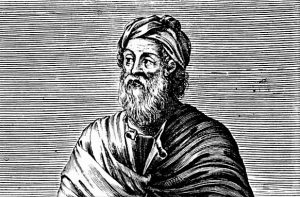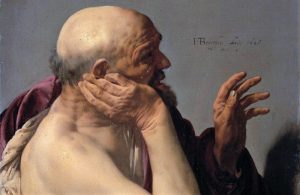Epictetus
Epictetus was a recognized Greek-Roman philosopher who emerged during the Hellenistic period. He managed to overcome great obstacles to go from being a crippled Roman slave to becoming one of the most popular and acclaimed philosophers of his time. He was one of the most influential teachers of the last years of Stoicism school, and some consider him the most important representative of the Stoics.
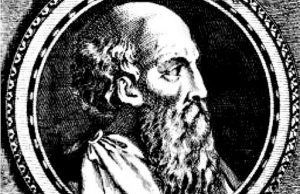
- Born: 50 A.D.
- Birthplace: Hierapolis, Turkey
- When he died: 135 A.D.
- Where did he die: Nicopolis, Greece
Who was Epictetus?
He was a Roman slave to Epaphroditus and a stoic philosopher who devoted himself fully to the study of philosophy and the way of leading a life based on moral aspect. He is the main representative of Stoicism.
Biography of Epictetus
Epictetus was born around A.D. 55 in the Roman city of Hierapolis. He spent his youth living in Rome as a slave of Epaphroditus, who was a rich freeman and secretary to the Roman emperor Nero. He was lame from birth, although some historians mention that he might have remained in this condition because of Epaphroditus. Even as a simple slave, he devoted himself to studying Stoic philosophy under one of the greatest Stoic masters of the time, Gaius Musonius Rufus, before being exiled from Nero for his ethical teachings.
He obtained his freedom after his master was executed by Nero’s successor, Emperor Domitian, and after his release he began to teach philosophy in Rome. In 93 B.C., Emperor Domitian decided to banish all philosophers from Rome, which is why Epictetus decided to travel to Nicopolis, a city located in northwestern Greece. In this place, he founded his own philosophical school, a school that in a short time, acquired a good reputation, attracting many Romans from the high class. His life was surrounded by great simplicity, and he had very few possessions.
According to historians, he was a powerful and famous orator who was greatly recognized for his knowledge and wisdom. According to some reports, he was more popular in his time than Plato himself, and Emperor Hadrian. He never married and had no children, and for many years lived alone, although in his old age he adopted the son of a friend and raised him as his own. Epictetus died around 135 B.C. in Nicopolis.
Thought of Epictetus
Epictetus focused mainly on ethics and came to the logical conclusion of the tendency from stoicism to reduce philosophy to Ethics. He used the role of the Stoic teacher as a stimulus for his students to discover the invariable and inviolable nature of things. For Epictetus, the nature of things is divided into two categories: things that are subject to our exclusive power, such as judgment, impulse, desire, aversion, and those things that are not, such as health, material wealth, fame. In order to achieve the ultimate goal of ataraxia or calm and serene state of mind, he thought that the philosopher should focus on those things over which he has some control, and not be affected by external objects of our life which could not be controlled.
In this way, Stoicism teaches the development of self-control and strength as a means of overcoming destructive emotions, in order to develop a clear judgment and inner calm, whose main objective was to attain freedom from suffering. He also believed in exercising character and personal behavior because morality could not be achieved only by chance or accident but was something that had to be worked every day.
His thought can be considered as one of the main roots of the psychology of self-control, because he succeeded in exerting a great influence on the thinkers who followed him. For him, the most important thing is what we become and the kind of life we lead, because a happy and virtuous life is the same thing.
Contributions
Epictetus founded a practical philosophy that was primarily aimed at finding a way to live better, happier and more dignified lives, while at the same time achieving freedom and autonomy. He left as a legacy, his principle: to know what can be controlled and what cannot be controlled. He taught with his theory that human beings should focus on what they can control and discard the rest of things. He inherited these principles to philosophy which tells us that things do not have the capacity to hurt us, and that the things that hurt us are merely because we decide if we take things calmly or if we sink because of anger. He also taught that the will of the human being can always be controlled. He had a great influence on cognitive psychology.
Works of Epictetus
Some of his most important works are:
- A manual of life.
- Manual of life.
- Manual for a happy life.
- Enquiridion.
- Maximums of Epictetus.
- Dissertations by Arriano.
Life manual
His life manual is an exhortation to lead a good life, his reflections and maxims remain attached to the reality about existence to create a philosophical model of our daily behavior in order to achieve a peaceful and happy life. It tells us how we should live daily, the right way to judge things that happen to us, how to talk, how to laugh, the right way to take care of the body and food. It focuses on love and pleasures, friends, society and how to deal with accidents and misfortunes.
Phrases
- When sentencing, try to forget the litigants and remember only the case.
- Just as there is an art of good speech, there is an art of good listening.
- Prudence is the highest of all goods.
- Don’t expect things to happen the way you want. Rather, you want them to be produced as they are produced, and you will be happy.
- A ship should not sail with a single anchor, nor life with a single hope.
- Rare pleasures are the most delightful.
- The source of all miseries for man is not death, but the fear of death.
How to cite this article?
Briceño V., Gabriela. (2019). Epictetus. Recovered on 23 February, 2024, de Euston96: https://www.euston96.com/en/epictetus/



